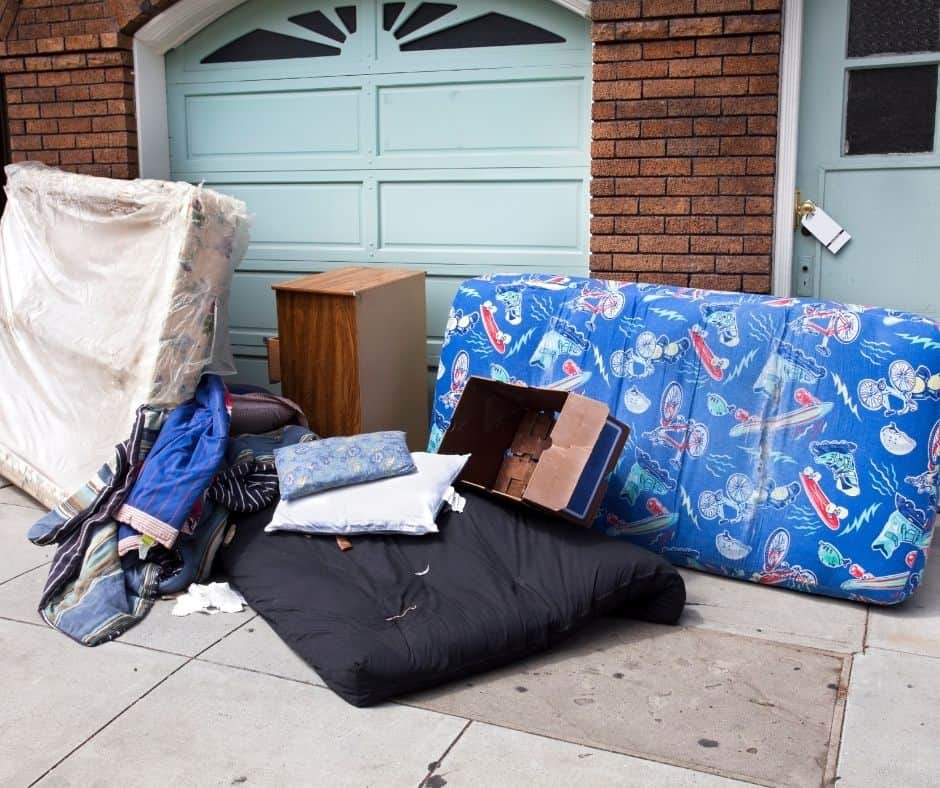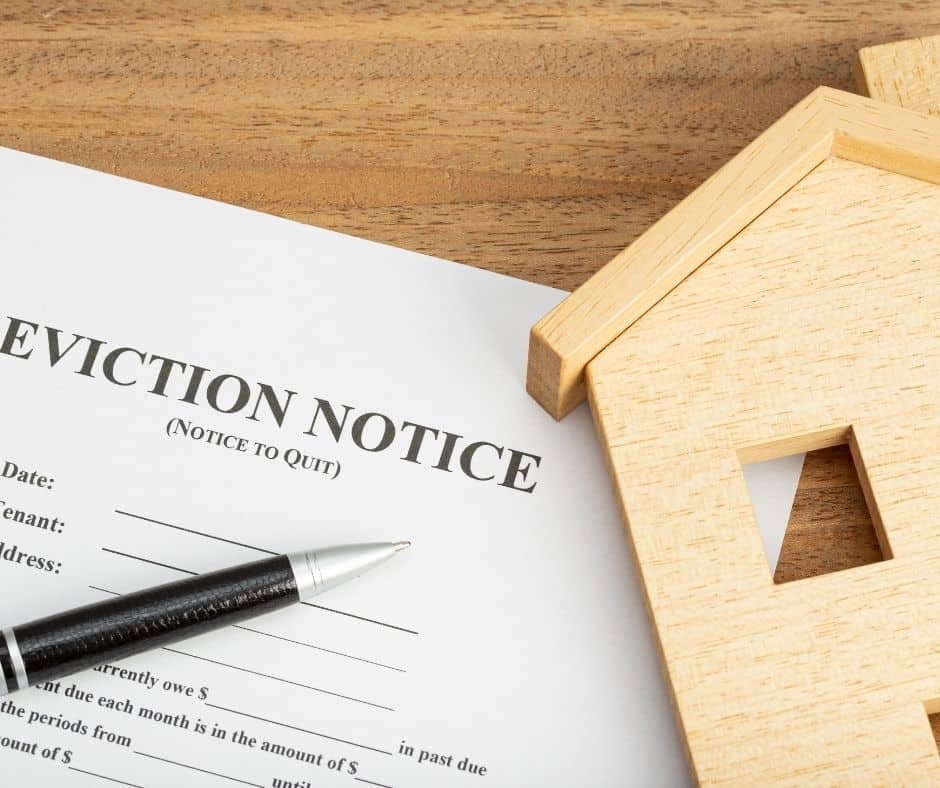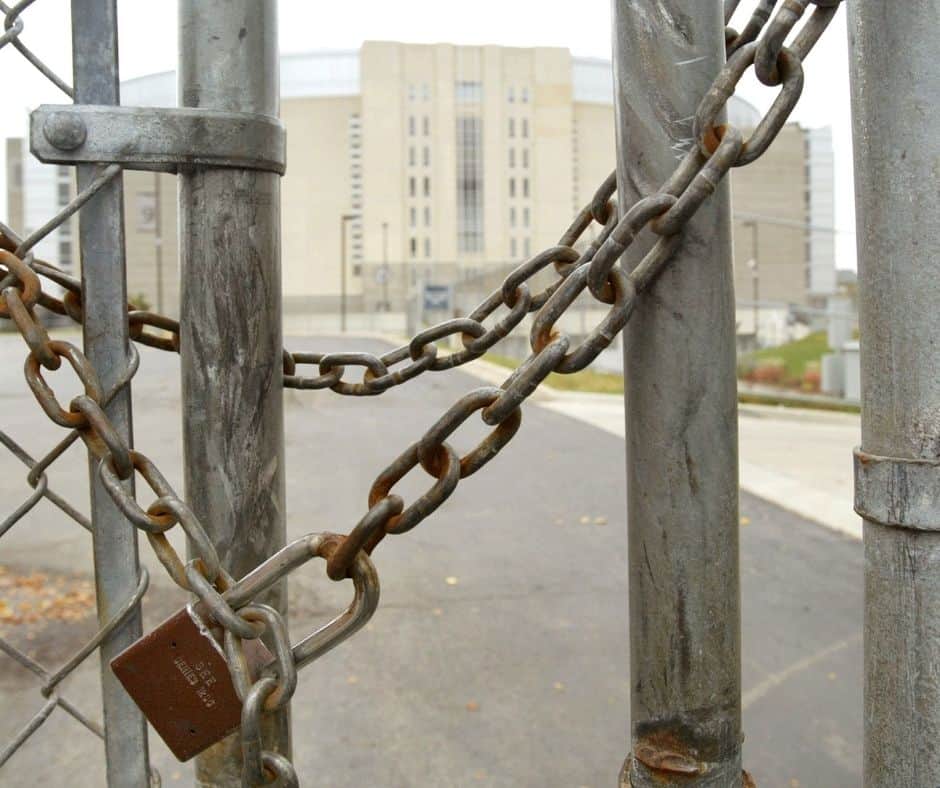Self Storage vs Peer-to-Peer: Complete Guide
- June 2, 2025
- Cheap storage near me, Self Storage
Struggling to decide between self-storage and peer-to-peer storage? Here’s what you need to know upfront:
- Cost: Peer-to-peer storage is…
Read More

Unfortunately, eviction is a big part of the storage industry, especially during the COVID pandemic. Renters may have fallen on hard times due to businesses shutting down and employees losing their paychecks overnight. Shutting down businesses while millions of people lose their jobs put property owners and storage companies in a challenging position. Here are some quick steps to evict your renter and how you can maneuver the situation legally and professionally.
Good communication goes a long way
The most important part of being a property owner or storage host is establishing reasonable means of communication with your renter. Things happen, issues come up, life takes drastic turns when you least expect it, so it’s best to handle the situation for what it is and communicate your expectations to your renter. As a property owner, you would rather keep the renter on good terms and keep them renting for the long-term as it’s constant cash flow in your pocket. Realize this is the best-case scenario for all parties. Property owners can resolve most issues by reaching out to your renter, letting them know your concerns, stating the lease agreement or Terms & Conditions, and adequately professionally communicating your side. The eviction process is harsh on all parties, so make sure you try and work with the renter to solve the issues before taking firm action.
Follow State laws
As a property owner, it’s crucial to follow the agreement between you and the renter and the laws in your state. You don’t want to turn this ugly situation into an even uglier one by not following your state laws. As a property owner, you may even be at fault, and a lawsuit may be coming in your direction if the eviction process is not done correctly. You want to avoid this as it takes time and high costs to the court. There are different notices and various types of procedures depending on the issue. Most states’ processes are straightforward, but any misstep can lead to trouble.
Should I evict my renter?
There are many reasons why a property owner or storage facility would even consider evicting a renter. Property owners cannot just evict a renter for just cause without any valid reason. To determine if you should start the eviction process, do a thorough investigation into the matter to make sure you’re making the right decision. Evicting a renter can be more troublesome than working out a solution. We recommend doing everything you can and sending notifications to the renter on what you expect and in what time frame. Most issues can be solved by good communication of the Terms & Conditions or lease agreement and developing a plan for the renter moving forward. It’s much easier to keep the renter you already have than to go through the eviction process and find a new trustworthy renter. Here are some valid reasons to evict a renter:

Perform an investigation
The best thing you can do as a property owner or host is to investigate and gather the facts. Document all communication between the renter, record what you’ve seen, noticed, and any failed payments. The documented proof will be necessary for the eviction process and for filing an eviction lawsuit with the courts. Courts will ask for all related documentation with the issue so it’s best to gather all of this during your investigation to determine your following actions. Your next steps will be dependent on the results of your investigation:
How to start the eviction process
So, you did your investigation and found your renter to be non-compliant with the Terms & Conditions or the lease agreement. How do you proceed from here?
Failure to pay rent or non-payment
If your renter failed to pay for their storage space, first check the laws of your state to determine how to proceed. Typically states will require the property owner to provide an eviction notice of pay or vacate. In Washington, this is a 14-day notice to pay or vacate. You find this notice at sites like RocketLawyer. This notice allows the renter to either come up with the rent payment or leave the property in a timely fashion. For property owners, this starts the eviction process and protects you if the situation needs to go to court.
Sending a 14-day notice is an excellent first step, so the renter knows you’re serious. At the same time, you also provide them with adequate time to solve the issue, as well as it now provides you with legal protection if the situation needs to be taken to court. This notice has to be sent via email, mail, posted on the space being rented, or hand-delivered to them in the space. There are multiple ways of getting the eviction to the renter, but you have to do it legally and make sure the renter receives the notice. If the property owner fails to deliver the notice, they will have problems filing the eviction lawsuit in court.

Violation of lease agreement/Terms & Conditions
Lease agreements or Terms & Conditions can vary by the type of storage, storage service, and agreement between renter and property owner. The property owner should provide a 10-day Notice to Comply if the renter violates the agreement other than failure to pay. This notice gives the renter a 10-day period to fix the issue or vacate the property. The property owner may continue filing an eviction lawsuit if the tenant fails to resolve the issue and remains inside the space. It’s essential to know your terms as a property owner and the laws in your state. Here are some typical violations that result in eviction:
Criminal Activity
As surprising as it sounds, some renters still believe they can get away with criminal activity in storage space. It’s best to deal with these individuals right away and give them little time to get off the property. If a renter is engaging in criminal activity, don’t hesitate to call the police and explain the situation. The last thing you need as a property owner is to be tied up in a criminal investigation for renting out your property. Depending on the seriousness of the situation, it’s best to get ahead of the problem. No property owner needs to deal with court cases or criminals. Get the renter to vacate the property within 3-days.
Locking out renter
It’s important to know when to lock out a renter as they may vacate the property, which means you will need to give them access to the space. Locking out the renter depends on your legal agreement with the renter and the notice you have sent them. If it’s a 14-day pay or vacates notice, you may lock out the renter after 14 days if they still haven’t paid. You will then take ownership of the belongings and items that may not be worth the amount owed to you. The amount owed will be determined once the eviction lawsuit is filed, and you need to recoup the money owed to you. Locking out your renter is the second step in showing you mean business, and this needs to resolve as soon as possible.

Collect past due rent after the eviction
Once you have gone through the proper legal action to evict a renter, you need to figure out how to collect the payment owed to you. The collection depends on the courts and what they rule on the eviction lawsuit. Here are a few options that you can take to recoup your payment.
Garnish their wages
If the courts grant judgment in favor of the property owner and agree, the renter owes past due rent. The court order can be issued and given to the renter’s employer. The employer will have to pay you before they pay the renter.
Here is an article with further detail: How To Execute Tax Refund Garnishments For Past Due Rent
Small claims court
In small claims courts, you can sue for back-due rent along with the eviction lawsuit. Filing your claims during the eviction lawsuit will cut your need to go to court, so you don’t have to file a separate small claims lawsuit for payments owed to you. When filing your eviction lawsuit, you also try to combine this small claim lawsuit as some courts don’t allow it.
Use private collector
Another way is to use a debt collector company. There are companies like this that will do all the payment collecting for you and report it to the credit bureaus. It’s essential to let these agencies know of these renters’ issues, so no other property owner goes through the same thing.
Article: Best Debt Collection Agencies
Garnish their tax refund
You can also garnish the renter’s tax refund! Garnishing a renters tax refund comes as a surprise, but it’s a great way to collect owed payments to you. Some people receive a refund from the IRS, but in this case, it would just come directly to you.
How to protect yourself for the future
Protecting yourself is the most critical part after dealing with a bad renter. If you don’t learn from your mistakes, you will continue to have issues with renters, which takes more time and profit from your operations. There are some simple things that property owners can do to avoid this situation again.
Background & Credit checks
Background and credit checks are a great way to determine your renter before you meet them. It’s good to know if someone can pay for the space before agreeing. Not everyone is truthful outside, but the background and credit checks will determine if they’re a good renter and suitable for your space. Many renters do not want to pay the fee to do a background or credit check so that you can add this cost into the rental price, so the renter pays for it over time.
Automatic Payments
Automatic payments are essential when managing a property and managing your renters. The proper payment system takes the issues and stresses bugging your renter every month for expenses. Here at PeerStorage, we use Stripe as our payment system, so we take all the stress away for the property owner and set our renters on a billing schedule that works for everyone. Stripe also allows us to retry failed payments multiple times, significantly reducing the number of renters defaulting.
Why PeerStorage?
PeerStorage helps property owners rent out their unused space to people who need storage and parking space. PeerStorage manages renters and the storage property to put money in our property owners’ pockets while providing low-cost, convenient storage for our renters. We care for our property owners by helping them through eviction processes, establishing automatic payments, and dealing with defaulted renters. We are with you every step of the way!
If you have extra space, feel free to contact us, and we will be happy to work with you on finding trusted renters for your space.
Drop us an email at [email protected]; we are here to help make you money!
Disclaimer: PeerStorage is not a lawyer and does not represent these contracts. The information provided on this website does not, and is not intended to, constitute legal advice; instead, all information, content, and materials available on this site are for general informational purposes only. Information on this website may not constitute the most up-to-date legal or other information.
Join The Discussion